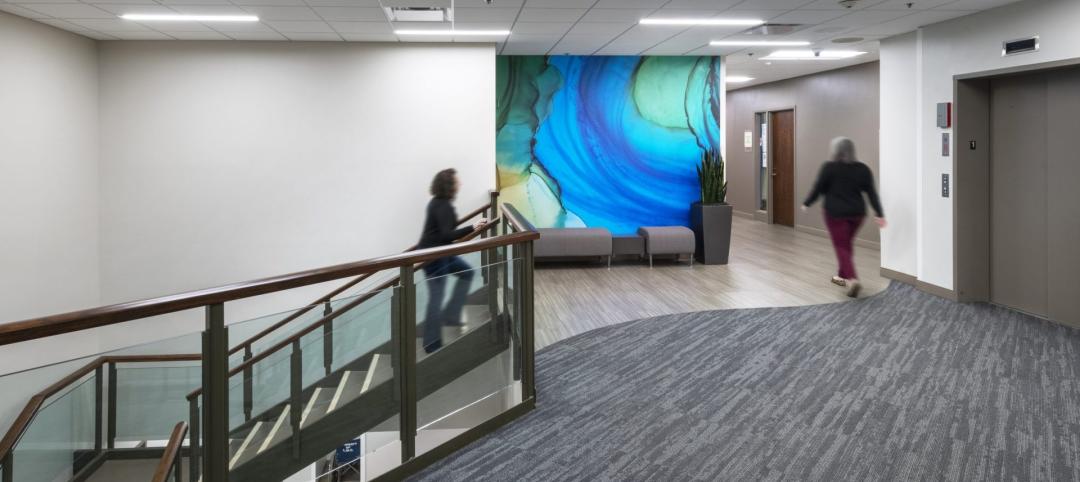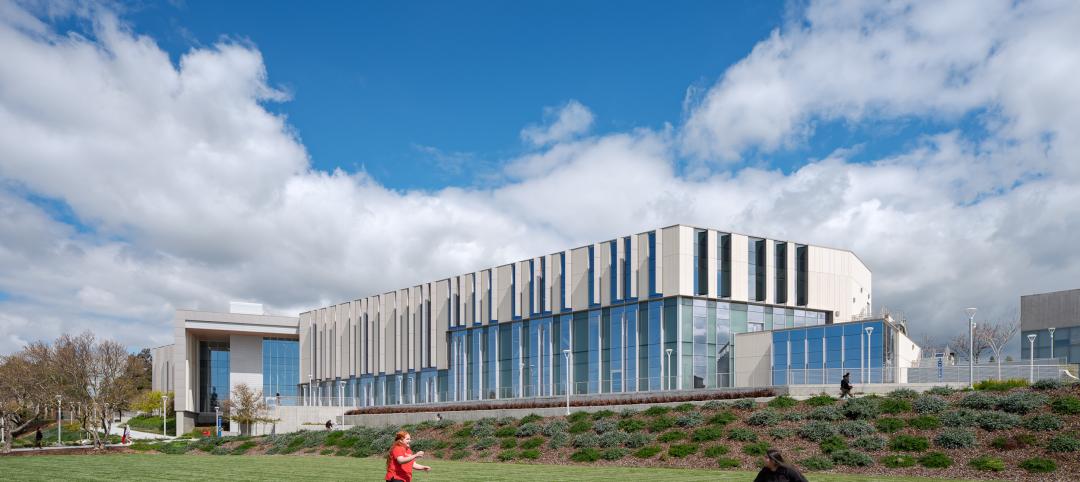Lilker Associates Consulting Engineers (lilker.com), a multidisciplinary MEP engineering firm with offices in Manhattan and Long Island, announces the acquisition of EMO Energy Solutions (EMO), a Falls Church, VA-based company in the DC Metro area specializing in energy audits, energy modeling, commissioning and LEED® consultation services. EMO will be integrated into a wholly owned subsidiary, Lilker EMO Energy Solutions. Managed from the Falls Church office, the newly formed subsidiary will provide comprehensive sustainable building systems design and energy conservation services on projects throughout the U.S.
EMO was founded in 1998 by licensed engineer and LEED Accredited professional Eric Oliver. The firm has developed energy strategies and provided energy consultation services to clients in the residential, commercial, institutional, government, and industrial building sectors for the past 15 years. Named one ofInc. Magazine's fastest growing companies in 2009, EMO has conducted over 45 million square feet of energy audits and participated in more than 350 LEED projects.
By combining the capabilities of a full service design firm with energy specialists, Lilker EMO Energy Solutions will provide state of the art knowledge and experience to enhance energy efficiency at every stage of the building process—from planning, design, energy modeling and energy auditing through installation, commissioning and retro-commissioning—for new construction and existing building renovations.
Lilker CEO and President Bruce Lilker, PE, says, "The formation of our new subsidiary, Lilker EMO Energy Solutions, reflects our commitment to sustainable design and allows us to offer clients the full range of energy consulting services along with our extensive design capabilities. It also provides an opportunity to bring our significant expertise in MEP engineering and technology solutions to the Washington, DC area."
Lilker EMO Energy Solutions will be led by Oliver, who will serve as Managing Director. A passionate conservationist, Oliver started his career with the federal government in EPA's Energy Star Buildings Program. He founded EMO to address the growing need for energy audit services, prior to the advent of the LEED rating systems. EMO was one of the earliest practitioners of the LEED program, adding energy modeling, commissioning, and LEED consulting services to its auditing capabilities. Oliver's 23 years of experience also includes technology feasibility studies, cost-benefit analysis, and the development of energy conservation and sustainable design strategies and policies. He has conducted energy training seminars, created energy awareness and education campaigns, and presented and moderated at several energy conferences.
Oliver holds a Master's degree in Building Technology and a Bachelor of Architecture from MIT. He is a Certified Energy Manager and a Certified Home Energy Rater.
"We're very excited about joining forces and becoming part of the Lilker team," says Oliver. "Integrating our skill set with the design function benefits the client from the planning stage forward. It streamlines the process and allows us to have a greater impact on energy conservation, which has always been my ultimate goal."
Founded in 1985, Lilker Associates is an award-winning, 100-member MEP engineering and energy firm headquartered in Manhattan with offices on Long Island and in Falls Church, VA. Licensed in many states, the company provides services for new and renovated commercial, institutional and retail facilities as well as high-rise and luxury residential buildings. The firm has two wholly owned subsidiaries: Technology Solutions Group (TSG) serves IT cabling, audio visual and security design needs; Lilker EMO Energy Solutions provides comprehensive energy auditing, modeling, commissioning and LEED consultation services.
(http://www.reuters.com/article/2013/05/01/lilker-acquires-emo-idUSnPNDC05652+1e0+PRN20130501)
Related Stories
Transit Facilities | Jun 15, 2023
Arlington, Va., transit station will support zero emissions bus fleet
Arlington (Va.) Transit’s new operations and maintenance facility will support a transition of their current bus fleet to Zero Emissions Buses (ZEBs). The facility will reflect a modern industrial design with operational layouts to embrace a functional aesthetic. Intuitive entry points and wayfinding will include biophilic accents.
Urban Planning | Jun 15, 2023
Arizona limits housing projects in Phoenix area over groundwater supply concerns
Arizona will no longer grant certifications for new residential developments in Phoenix, it’s largest city, due to concerns over groundwater supply. The announcement indicates that the Phoenix area, currently the nation’s fastest-growing region in terms of population growth, will not be able to sustain its rapid growth because of limited freshwater resources.
Multifamily Housing | Jun 15, 2023
Alliance of Pittsburgh building owners slashes carbon emissions by 45%
The Pittsburgh 2030 District, an alliance of property owners in the Pittsburgh area, says that it has reduced carbon emissions by 44.8% below baseline. Begun in 2012 under the guidance of the Green Building Alliance (GBA), the Pittsburgh 2030 District encompasses more than 86 million sf of space within 556 buildings.
Industry Research | Jun 15, 2023
Exurbs and emerging suburbs having fastest population growth, says Cushman & Wakefield
Recently released county and metro-level population growth data by the U.S. Census Bureau shows that the fastest growing areas are found in exurbs and emerging suburbs.
Healthcare Facilities | Jun 14, 2023
Design considerations for behavioral health patients
The surrounding environment plays a huge role in the mental state of the occupants of a space, especially behavioral health patients whose perception of safety can be heightened. When patients do not feel comfortable in a space, the relationships between patients and therapists are negatively affected.
Engineers | Jun 14, 2023
The high cost of low maintenance
Walter P Moore’s Javier Balma, PhD, PE, SE, and Webb Wright, PE, identify the primary causes of engineering failures, define proactive versus reactive maintenance, recognize the reasons for deferred maintenance, and identify the financial and safety risks related to deferred maintenance.
University Buildings | Jun 14, 2023
Calif. State University’s new ‘library-plus’ building bridges upper and lower campuses
A three-story “library-plus” building at California State University, East Bay (CSUEB) that ties together the upper and lower campuses was recently completed. The 100,977-sf facility, known as the Collaborative Opportunities for Research & Engagement (“CORE”) Building, is one of the busiest libraries in the CSU system. The previous library served 1.2 million visitors annually.
Resiliency | Jun 14, 2023
HUD offers $4.8 billion in funding for green and resilient building retrofit projects
The Department of Housing and Urban Development (HUD) recently released guidelines for its Green and Resilient Retrofit Program (GRRP) that has $4.8 billion for funding green projects.
Arenas | Jun 14, 2023
A multipurpose arena helps revitalize a historic African American community in Georgia
In Savannah, Ga., Enmarket Arena, a multipurpose arena that opened last year, has helped revitalize the city’s historic Canal District—home to a largely African American community that has been historically separated from the rest of downtown.
Building Materials | Jun 14, 2023
Construction input prices fall 0.6% in May 2023
Construction input prices fell 0.6% in May compared to the previous month, according to an Associated Builders and Contractors analysis of the U.S. Bureau of Labor Statistics’ Producer Price Index data released today. Nonresidential construction input prices declined 0.5% for the month.

















